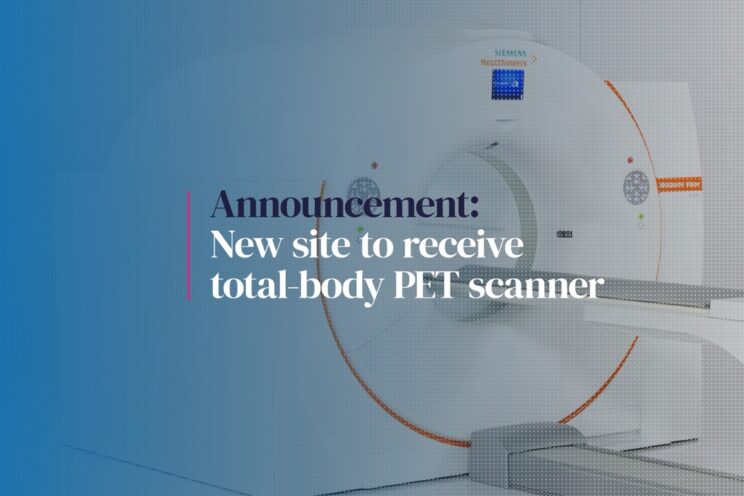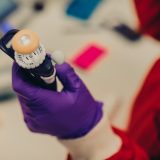The National PET Imaging Platform (NPIP) has announced that the University of Cambridge will be the newest site to install a total-body PET scanner, further expanding NPIP’s national network of infrastructure and intelligence.
The scanner, funded by an additional £5.5m investment from the UKRI Medical Research Council, will be located at Addenbrooke’s Hospital, Cambridge.
By harnessing the power of its unique combination of technology and data, NPIP is helping to improve the quality and speed of drug discovery, transform the quality of medical research across the UK, and provide a richer picture of human health, leading to better patient outcomes.
Once operational, the Cambridge scanner will connect with other total-body PET scanners in the NPIP network, which are based at hospitals in London and Scotland.
The data generated through NPIP’s national network of scanners will feed into a bank of information from patients across the UK. These valuable insights will enhance diagnosis, help researchers better understand diseases, and facilitate the development of new medicines.
Provided by Siemens Healthineers, the Biograph Vision Quadra PET/CT scanner that will be installed in Cambridge is up to 40 times more sensitive and can operate up to 10 times faster than current machines. This advanced technology can scan 50% more patients each day compared to standard PET scanners. It can detect subtle and early signs of various types of cancer, as well as neurological, cardiovascular, and musculoskeletal conditions.
Dr Juliana Maynard, Director of Operations and Engagement for the National PET Imaging Platform, said:
“We are delighted to welcome the University of Cambridge as the latest partner of NPIP, expanding our game-changing national imaging infrastructure to benefit even more researchers, clinicians, industry partners and, importantly, patients. Once operational, the scanner will contribute to NPIP’s connected network of data, which will improve diagnosis and aid researchers’ understanding of diseases, unlocking more opportunities for drug discovery and development. By fostering collaboration on this scale, NPIP helps accelerate disease diagnosis, treatment, and clinical trials, ultimately leading to improved outcomes for patients.”
Franklin Aigbirhio, Professor of Molecular Imaging Chemistry at the University of Cambridge, and ANGLIA network lead, said:
“This is an exciting new technology that will transform our ability to answer important questions about how diseases arise and to search for and develop new treatments that will ultimately benefit not just our patients, but those across the UK and beyond.
“But this is more than just a research tool. It will also help us diagnose and treat diseases at an even earlier stage, particularly in children, for whom repeated investigations using standard PET scanners is not an option.”
Dr Ceri Williams, Executive Director of Challenge-Led Themes at MRC, said:
“MRC is delighted to augment the funding for NPIP to provide an additional scanner for Cambridge in line with the original recommendations of the funding panel. This additional machine will broaden the geographic reach of the platform, providing better access for patients from East Anglia and the Midlands, and enable research to drive innovation in imaging, detection, and diagnosis, alongside supporting partnership with industry to drive improvements and efficiency for the NHS.”
Gill Coughlan, Business Line Manager for Molecular Imaging at Siemens Healthineers Great Britain and Ireland, said:
“The Biograph Vision Quadra at Cambridge University Hospitals represents a significant step forward in PET/CT research in the UK. This technology marks a shift from organ-centric to patient-centric imaging, enabling researchers to rapidly study disease across multiple organs. With increased detectability of smaller lesions and reduced scan time, it delivers the precision and data quality needed to support more ambitious studies and more confident decisions. Through this cutting-edge research, we are laying the groundwork for more accurate diagnosis, better therapies, and ultimately, improved patient outcomes.”
NPIP is the UK’s first-of-its-kind national total-body PET imaging platform for drug discovery research. It is funded by the UKRI Infrastructure Fund and managed through a partnership between Medicines Discovery Catapult, the Medical Research Council, and Innovate UK.
The NPIP Cambridge site is expected to be operational by the end of 2026.
To learn more about NPIP, explore collaboration opportunities, or follow project developments, visit www.npip.org.uk.



